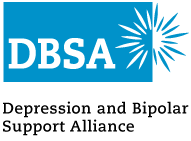Results for Youth Living with Bipolar Disorder and Their Families
Patient, parent and provider perspectives on weight gain
Results for Clinicians
Publications:
SGA adherence rates and barriers
Metabolic monitoring rates in a commercial health plan
Posters:
Patient, parent and provider perspectives on weight gain
Engagement in a pragmatic trial
Initial study design and sample characteristics
Prescribing patterns in adolescents with bipolar spectrum disorders
Predictors of metabolic monitoring
Elevated Transaminases in Overweight Youth on SGAs
Results from the Telehealth During COVID sub-study (TEACH)
Publications:
Predictors of COVID-19 vaccine uptake
Posters:
Utilizing telemedicine for mental healthcare during COVID-19
Clinician perception of telehealth during COVID-19
Impact of COVID on trauma, mood, and anxiety among youth with bipolar disorder
Social media use and depression during COVID-19








